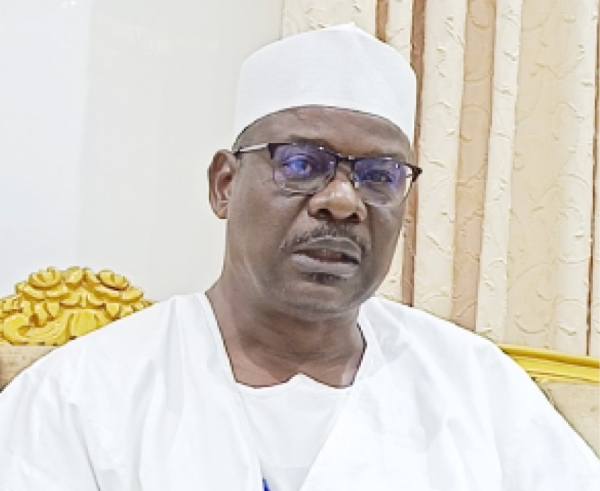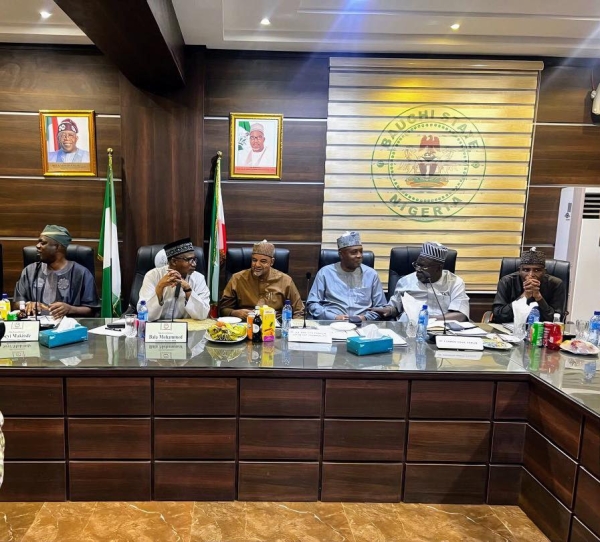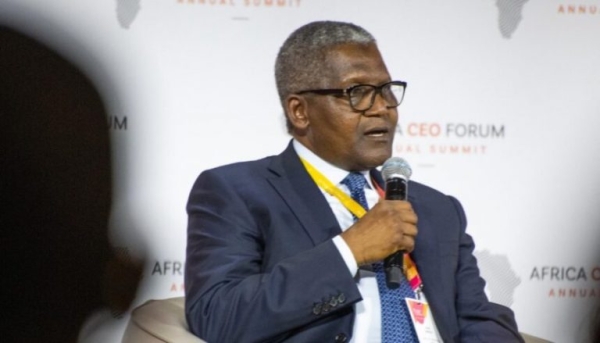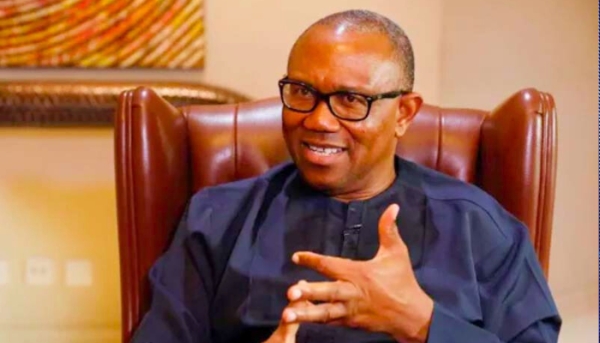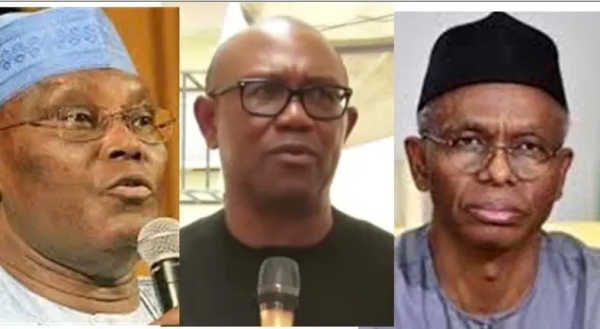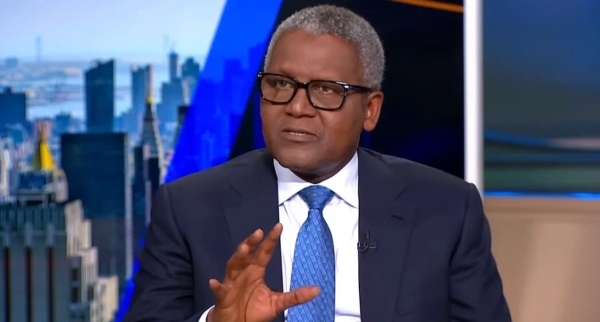TOP NEWS
Reuben's View
Latest News
Search
MOST READ
-
Tinubu Offers Appointment To Former Edo Deputy Governor, Philip Shaibu
-
Obi Rejects Atiku Coalition, Vows To Contest 2027 Election Under LP
-
I may not contest again after 2027, says Obi
-
JAMB releases UTME resit results after technical error
-
Coalition: Atiku draws battle line with PDP govs, others
-
Forget One-party System Now, Tackle Poverty, SANs, Scholars Tell Politicians
-
[OPINION] BORNO: Hold Governor Zulum responsible - Dele Sobowale
-
DELTA: How APC saw Gov Oborevwori before and after defection
-
Tinubu’s inclusion of 12 northerners in new appointments good omen – Ndume
-
PDP crisis: S’East caucus gives Saraki panel truce condition
-
Many feared dead in Nyanya-Mararaba road accident in Abuja
1182 times -
World War 3: UK, France, Canada Warn Israel Against Further Military Action In Gaza
629 times -
Remember You Are Not Taking Money To Grave – Dangote To Politicians
557 times -
Nigeria Could Be Looking At Winning Team, If Atiku, Obi And El-Rufai Align’ – PDP
536 times -
2027: Peter Obi moving quietly, having underground meetings to unseat Tinubu – Adebayo
524 times -
‘African Giant Burna Boy is dead’ – Singer says
519 times -
2027: Atiku, Obi, El-Rufai coalition’ll defeat Tinubu if… – PDP
515 times -
2027 coalition: Atiku camp offers Obi VP role in one-term deal
507 times -
FG makes 52 kobo from every N1 generated by my cement company - Dangote
483 times -
Saudi Arabia Authorities Arrest ‘Wife, Mother’ Of Notorious Bandit Leader, Ado Aliero
470 times








![[OPINION] Zulum And The Surge In Insurgency - Reuben Abati [OPINION] Zulum And The Surge In Insurgency - Reuben Abati](https://reubenabati.com.ng/cache/mod_bt_contentslider/ad6e52c43f66e3cf537b06ad38aa93b6-8ac05a2894b5e82aeee611e792497153_XL.jpg)
![[OPINION] Defections And Threat Of One-Party State - Reuben Abati [OPINION] Defections And Threat Of One-Party State - Reuben Abati](https://reubenabati.com.ng/cache/mod_bt_contentslider/e16351efb50f01266cc28b7377bd5e83-90b1922af682fff68852fa7fab5a4331_XL.jpg)
![[OPINION] Pope Trump, Adebanjo And Other Stories - Reuben Abati [OPINION] Pope Trump, Adebanjo And Other Stories - Reuben Abati](https://reubenabati.com.ng/cache/mod_bt_contentslider/a9c28326249471b0c6d135375d9aa6d3-66656381f38ceca0faf1a84f4c1885dd_XL.jpg)
![[OPINION] CBEX Wealth Chasers, NDIC And The Fate Of Depositors - Reuben Abati [OPINION] CBEX Wealth Chasers, NDIC And The Fate Of Depositors - Reuben Abati](https://reubenabati.com.ng/cache/mod_bt_contentslider/e7c29125e793371f688b9def0c150948-867aa1263f279020e1b930969b024a70_XL.jpg)
![[OPINION] Pope Francis (1936 – 2025) - Reuben Abati [OPINION] Pope Francis (1936 – 2025) - Reuben Abati](https://reubenabati.com.ng/cache/mod_bt_contentslider/9df20a858100040a45e2fc6915d65f41-c0395aa98d8919afead20f020215aa2b_XL.jpg)
![[OPINION] Plateau, Tsiga and Trump - Reuben Abati [OPINION] Plateau, Tsiga and Trump - Reuben Abati](https://reubenabati.com.ng/cache/mod_bt_contentslider/d4ff657a4976c08f133a5993db7ca3de-076f7f795e47e1dc74a28ca93d3c698e_XL.jpg)
![[OPINION] The Uromi 16 And The Problem With Nigeria - Reuben Abati [OPINION] The Uromi 16 And The Problem With Nigeria - Reuben Abati](https://reubenabati.com.ng/cache/mod_bt_contentslider/848d0c6943c9a9cb7639e8f5640d2cbf-4b585f7414a3fc875b761851d4c5fcd4_XL.jpg)
![[OPINION] Breakfast With The Soludos - Reuben Abati [OPINION] Breakfast With The Soludos - Reuben Abati](https://reubenabati.com.ng/cache/mod_bt_contentslider/a98b5c30f61dcb10378fdba9f5e472ab-33b747862875f50d863e709f5955da5d_XL.jpg)
![[OPINION] The Emerging Coalition Against Tinubu/APC - Reuben Abati [OPINION] The Emerging Coalition Against Tinubu/APC - Reuben Abati](https://reubenabati.com.ng/cache/mod_bt_contentslider/ddd6416fbaa008a5bcbc568f0e3c8857-02972c9f0dee40a6ad85830afbb49758_XL.jpg)
![[OPINION] Nasir El-Rufai’s Defections: PDP, CPC, APC, SDP - Reuben Abati [OPINION] Nasir El-Rufai’s Defections: PDP, CPC, APC, SDP - Reuben Abati](https://reubenabati.com.ng/cache/mod_bt_contentslider/817d1e0c4d951b18f15f406968204870-61d46cc1859ac5d4f70406214a7d7e4f_XL.jpg)
![[OPINION] A World Of Godfathers - Reuben Abati [OPINION] A World Of Godfathers - Reuben Abati](https://reubenabati.com.ng/cache/mod_bt_contentslider/f282a08e8e116be2577cc430882505bc-6d66582218d28730d47a7b9a32e18004_XL.jpg)
![[OPINION] Babangida’s Book - Reuben Abati [OPINION] Babangida’s Book - Reuben Abati](https://reubenabati.com.ng/cache/mod_bt_contentslider/c8905774fa75570e79f747809f6c142f-4452414e756ce827f8bc4b72b9376062_XL.jpg)











![[OPINION] Peeping Into Adegoroye’s New Book: Leadership in Nigerian Civil Service… - Martins Oloja](https://reubenabati.com.ng/media/k2/items/cache/dea56b6624dba7c8c624e77b018493e8_XL.jpg?t=-62169984000)
![[OPINION] Tinubu’s Lifejacket And A Deer’s Sacred Skin - Festus Adedayo](https://reubenabati.com.ng/media/k2/items/cache/9203b36e254d08d8b974cf2215392a8b_XL.jpg?t=-62169984000)




![[OPINION] Before Nuhu Ribadu rides off into fantasy land - Chidi Anselm Odinkalu](https://reubenabati.com.ng/media/k2/items/cache/a2f2e1a397808b70fe57ea6376707a5a_XL.jpg?t=-62169984000)


![[OPINION] E-Jackasses On The Prowl! - Wole Olaoye](https://reubenabati.com.ng/media/k2/items/cache/2d745776c40a72cd1bd482921ffd2c09_XL.jpg?t=-62169984000)
![[OPINION] The Trouble with Nwaebonyi and ‘NwaNigeria’ - Simon Kolawole](https://reubenabati.com.ng/media/k2/items/cache/136f65eb8a3b99e832e0062cf0478507_XL.jpg?t=-62169984000)
![[OPINION] 2027: Are We Set for Upset or Coronation? - Waziri Adio](https://reubenabati.com.ng/media/k2/items/cache/1708113344bb76532715696d6e61f404_XL.jpg?t=-62169984000)

![[OPINION] NASS: Forget law on compulsory voting - Tonnie Iredia](https://reubenabati.com.ng/media/k2/items/cache/6b0d8c033f1074f65089af614ec2c960_XL.jpg?t=-62169984000)
![[OPINION] BORNO: Hold Governor Zulum responsible - Dele Sobowale](https://reubenabati.com.ng/media/k2/items/cache/44ac4fe98fac5e1d352d686b80426e59_XL.jpg?t=-62169984000)
![[OPINION] 2027 and the Tinubu Forever Choir - Ugoji Egbujo](https://reubenabati.com.ng/media/k2/items/cache/31879201c072cdb944961524c60d5e14_XL.jpg?t=-62169984000)
![[OPINION] Compulsory voting bill: A wild goose chase - Bolanle Bolawole](https://reubenabati.com.ng/media/k2/items/cache/387c5c9449bf7476380b23d6625f7400_XL.jpg?t=-62169984000)

![[OPINION] Trump, Malema, Ramaphosa And The Oval Office Grill - Femi Fani-Kayode](https://reubenabati.com.ng/media/k2/items/cache/eecc438dfe5a2aa8b38c486bdb514583_XL.jpg?t=-62169984000)




















![[OPINION] Peeping Into Adegoroye’s New Book: Leadership in Nigerian Civil Service… - Martins Oloja [OPINION] Peeping Into Adegoroye’s New Book: Leadership in Nigerian Civil Service… - Martins Oloja](https://reubenabati.com.ng/cache/mod_bt_contentslider/e1deab4322a9f32cededf5a271a03b13-dea56b6624dba7c8c624e77b018493e8_XL.jpg)
![[OPINION] Tinubu’s Lifejacket And A Deer’s Sacred Skin - Festus Adedayo [OPINION] Tinubu’s Lifejacket And A Deer’s Sacred Skin - Festus Adedayo](https://reubenabati.com.ng/cache/mod_bt_contentslider/64d6ed0a46846db05e1835e3a1d99892-9203b36e254d08d8b974cf2215392a8b_XL.jpg)




![[OPINION] Before Nuhu Ribadu rides off into fantasy land - Chidi Anselm Odinkalu [OPINION] Before Nuhu Ribadu rides off into fantasy land - Chidi Anselm Odinkalu](https://reubenabati.com.ng/cache/mod_bt_contentslider/bd96f80bd0b00d07f6e51c65cb61d813-a2f2e1a397808b70fe57ea6376707a5a_XL.jpg)


![[OPINION] E-Jackasses On The Prowl! - Wole Olaoye [OPINION] E-Jackasses On The Prowl! - Wole Olaoye](https://reubenabati.com.ng/cache/mod_bt_contentslider/8c2324bb68a67109f1e4436444964be4-2d745776c40a72cd1bd482921ffd2c09_XL.jpg)
![[OPINION] The Trouble with Nwaebonyi and ‘NwaNigeria’ - Simon Kolawole [OPINION] The Trouble with Nwaebonyi and ‘NwaNigeria’ - Simon Kolawole](https://reubenabati.com.ng/cache/mod_bt_contentslider/9173a09fb338d286aec4af02d19dc9ee-136f65eb8a3b99e832e0062cf0478507_XL.jpg)
![[OPINION] 2027: Are We Set for Upset or Coronation? - Waziri Adio [OPINION] 2027: Are We Set for Upset or Coronation? - Waziri Adio](https://reubenabati.com.ng/cache/mod_bt_contentslider/c155a2959c72a3a12c6938045c587eec-1708113344bb76532715696d6e61f404_XL.jpg)

![[OPINION] NASS: Forget law on compulsory voting - Tonnie Iredia [OPINION] NASS: Forget law on compulsory voting - Tonnie Iredia](https://reubenabati.com.ng/cache/mod_bt_contentslider/fd8361a02bf943818a62203e2773c96a-6b0d8c033f1074f65089af614ec2c960_XL.jpg)
![[OPINION] BORNO: Hold Governor Zulum responsible - Dele Sobowale [OPINION] BORNO: Hold Governor Zulum responsible - Dele Sobowale](https://reubenabati.com.ng/cache/mod_bt_contentslider/e97425556474e576d8b44de0d7e2e05f-44ac4fe98fac5e1d352d686b80426e59_XL.jpg)
![[OPINION] 2027 and the Tinubu Forever Choir - Ugoji Egbujo [OPINION] 2027 and the Tinubu Forever Choir - Ugoji Egbujo](https://reubenabati.com.ng/cache/mod_bt_contentslider/2cc572b009580755587c5cde9f387ef2-31879201c072cdb944961524c60d5e14_XL.jpg)
![[OPINION] Compulsory voting bill: A wild goose chase - Bolanle Bolawole [OPINION] Compulsory voting bill: A wild goose chase - Bolanle Bolawole](https://reubenabati.com.ng/cache/mod_bt_contentslider/7a518d328b30f5a17b043a934283332b-387c5c9449bf7476380b23d6625f7400_XL.jpg)

![[OPINION] Trump, Malema, Ramaphosa And The Oval Office Grill - Femi Fani-Kayode [OPINION] Trump, Malema, Ramaphosa And The Oval Office Grill - Femi Fani-Kayode](https://reubenabati.com.ng/cache/mod_bt_contentslider/508d1ce54ba2da6678cd3888d7b6b2d0-eecc438dfe5a2aa8b38c486bdb514583_XL.jpg)















![[OPINION] Evolution of “Sir” in Nigerian English Usage - Farooq A. Kperogi [OPINION] Evolution of “Sir” in Nigerian English Usage - Farooq A. Kperogi](https://reubenabati.com.ng/cache/mod_bt_contentslider/c1a9b49e837c969261b6b2395103b7e0-a2438f37f2cc84d68441c55d51bb07bc_XL.jpg)
![[OPINION] Hamdiyyah and Sokoto Governor’s Rejection-Sensitive Dysphoria - Farooq A. Kperogi [OPINION] Hamdiyyah and Sokoto Governor’s Rejection-Sensitive Dysphoria - Farooq A. Kperogi](https://reubenabati.com.ng/cache/mod_bt_contentslider/c243398dde88b46784e52404e67b889f-5e20e0ed115e3b1529a35dc696f48f2b_XL.jpg)
![[OPINION] Why Davido is as Much Yoruba as He is Igbo - Farooq A. Kperogi [OPINION] Why Davido is as Much Yoruba as He is Igbo - Farooq A. Kperogi](https://reubenabati.com.ng/cache/mod_bt_contentslider/620bb6291c1dcdd74cbd8635970d91d8-3dbdc23bc9ba1cb1f7cb2d4b66c19c8a_XL.jpg)
![[OPINION] The Inside Story: How It All Went Down in Rome - Bianca Odumegwu-Ojukwu [OPINION] The Inside Story: How It All Went Down in Rome - Bianca Odumegwu-Ojukwu](https://reubenabati.com.ng/cache/mod_bt_contentslider/91f743255a2699103b46a311002ebe13-no-image.jpg)
![[ZOOM MEETING] City Talks with Reuben Abati:Compulsory Voting Bill and Electoral Reforms - Evans Ufeli [ZOOM MEETING] City Talks with Reuben Abati:Compulsory Voting Bill and Electoral Reforms - Evans Ufeli](https://reubenabati.com.ng/cache/mod_bt_contentslider/c909856d1daf0dcaefe8165c28db4d5d-b8efbbdd73ff1616713b59c71a50352f_XL.jpg)
![[PRESS RELEASE] Atiku visits Osun for coronation of new monarch of Ijeshaland [PRESS RELEASE] Atiku visits Osun for coronation of new monarch of Ijeshaland](https://reubenabati.com.ng/cache/mod_bt_contentslider/07b61c58f74e3f7277a0e5f9ad933070-e5fe522110b79a3b446572d1ef94d1f9_XL.jpg)























![[FULL TEXT] Press Conference On The Illegal Detention, Harassment And Persecution Of Ms. Hamdiyyah Sharif Over Her Demand For End To Violence In Sokoto [FULL TEXT] Press Conference On The Illegal Detention, Harassment And Persecution Of Ms. Hamdiyyah Sharif Over Her Demand For End To Violence In Sokoto](https://reubenabati.com.ng/cache/mod_bt_contentslider/f1246aa655fd6ebb510a0862ef37b5c5-726e353d077aa81f26ce434889f0752c_XL.jpg)
















![Nigeria ranks 4th in African countries for highest Schengen visa rejection [Full List] Nigeria ranks 4th in African countries for highest Schengen visa rejection [Full List]](https://reubenabati.com.ng/cache/mod_bt_contentslider/fb19bb9254053708d9d0104fb0e4465b-179e172057cdf2e473a05274838efcba_XL.jpg)





















![[OPINION] Ishaq Oloyede’s Cross - Azu Ishiekwene [OPINION] Ishaq Oloyede’s Cross - Azu Ishiekwene](https://reubenabati.com.ng/cache/mod_bt_contentslider/6089b20aff9db5cb1ac215c473fc6e9b-64be1af5c1e0e889898b67f1c0aff65f_XL.jpg)






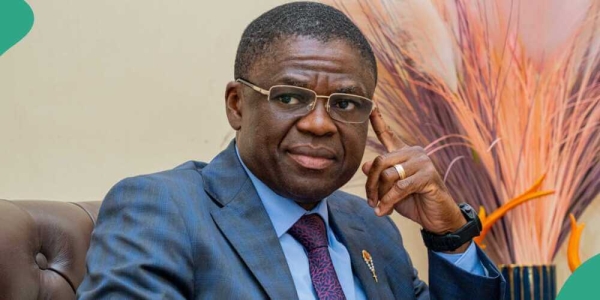

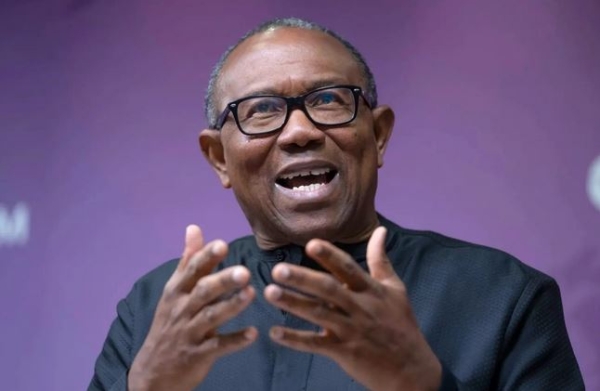

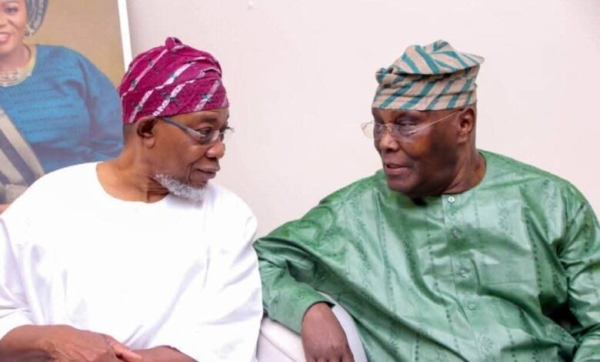
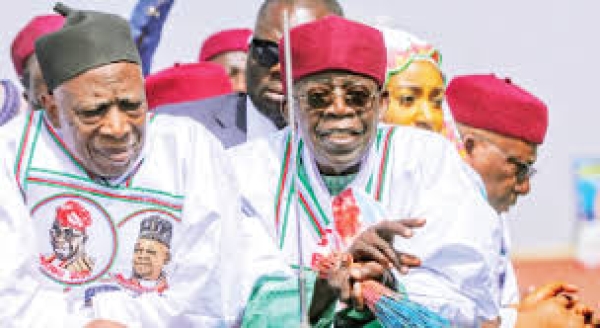
![[OPINION] BORNO: Hold Governor Zulum responsible - Dele Sobowale](/media/k2/items/cache/44ac4fe98fac5e1d352d686b80426e59_XL.jpg)

